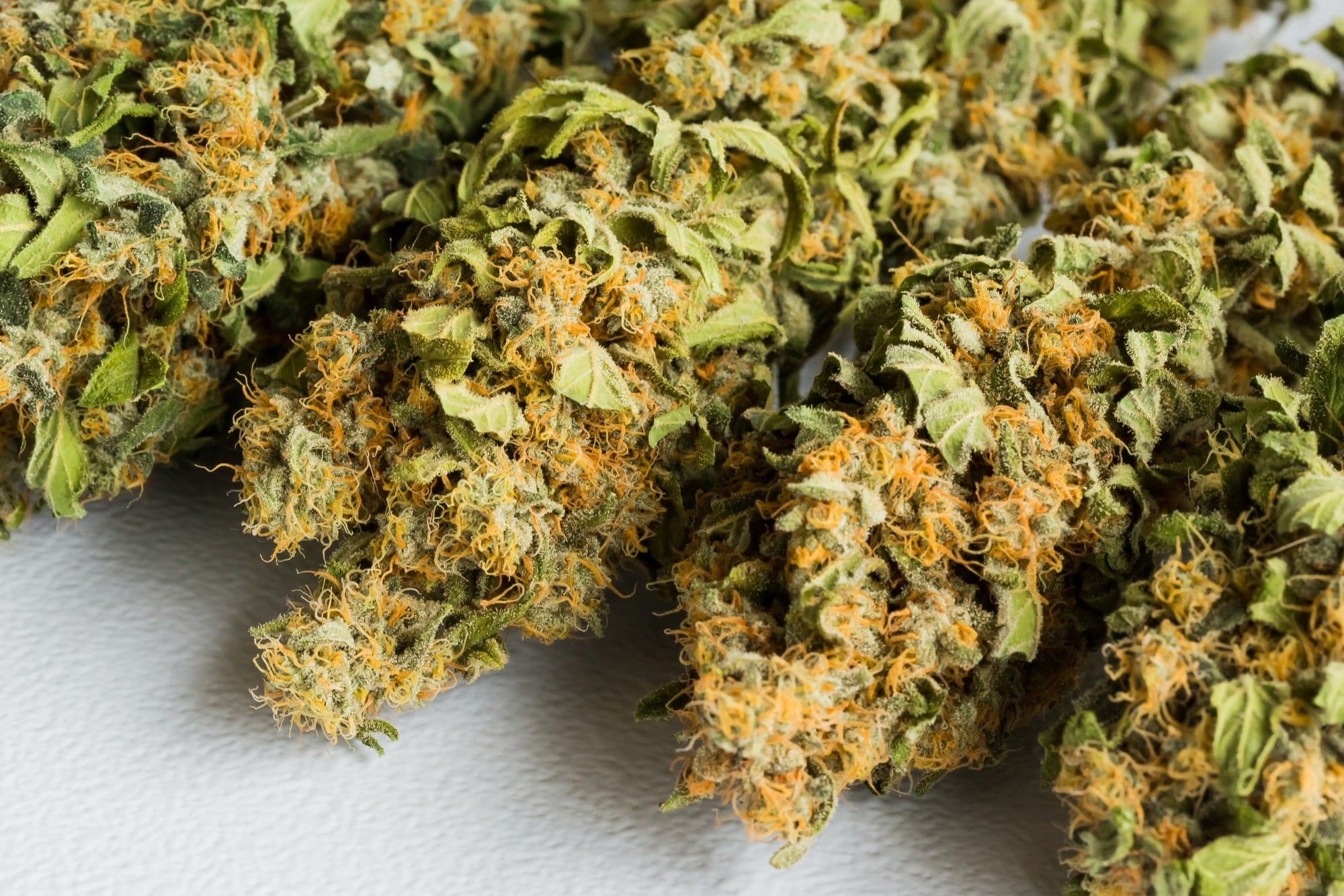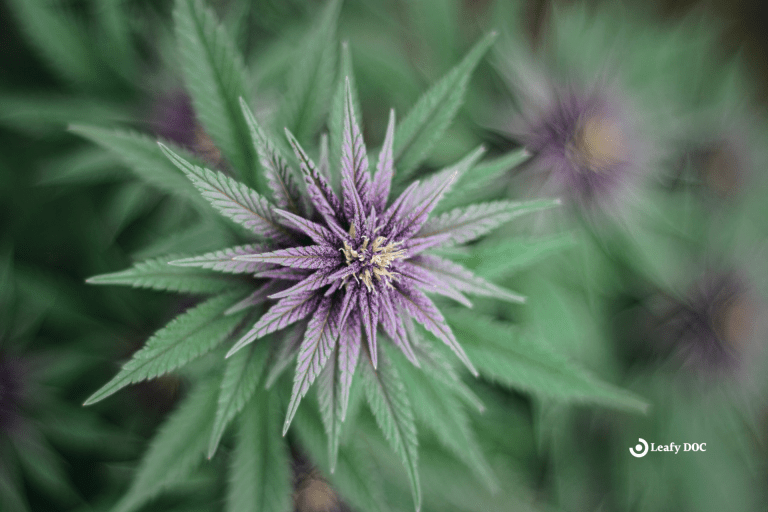The Effects of Weed on Your Health
by Haley Mills · September 19, 2022
Weed, also known as marijuana, has been used for centuries for its medicinal properties. But what are the effects of weed on your health?

The potential benefits of medical treatment with cannabis are vast and over half of Americans support legalizing marijuana for medical and recreational use. Specific cannabinoids can produce a therapeutic potential for patients with different health conditions; however, some adverse risks can be associated with long-term and heavy marijuana use. Here, we’ll discuss the pros and cons of marajuana.
Positive Effects of Cannabis Use
Professional medical advice suggests that cannabinoids have varying health benefits. They have been used throughout history to manage various health concerns and ailments. While research continues, more evidence suggests that cannabis and cannabinoids can benefit human health.
Research is being done worldwide to see how cannabis may aid in fighting cancer, slowing down tumor growth, and if cannabinol delays symptom onset for certain chronic pain conditions involving peripheral analgesics.
Different cannabinoids are also being looked at as options that may benefit those who suffer from autoimmune diseases such as rheumatoid arthritis, lupus, Crohn’s disease, multiple sclerosis, and HIV/AIDS.
Pain Relief
Cannabis can relieve chronic pain, and acute cannabis can fully treat chronic pain in some patients. It is also an antioxidant and can help reduce long-term inflammation. Weed contains cannabinoid receptors that block regular pain signals in the brain and trigger an increased immune response.
Improved Appetite and Nausea Reduction
Two FDA-approved cannabis-related medications with medical benefits are nabilone (Cesamet) and dronabinol (Marinol). They are synthetic cannabinoids, not made from the cannabis plant, and are prescribed for nausea, vomiting, and low appetite.
Smoking weed has also been known to help promote an appetite for cancer patients and those with eating disorders.
Sleep Aid
Cannabis has been shown in research studies to help people fall asleep, stay asleep, and improve sleep quality. The endocannabinoid system has a part in maintaining several body functions, including sleep and regulation of circadian rhythms. For many, it can offer a night of better sleep and thus a healthy lifestyle to follow.
Skin Care
CBD used to control pain and treat skin conditions can be traced back to ancient times, as they used it in abundance during religious practices and rituals. The earliest uses of cannabis for skincare can be traced back to Ancient Egypt. Pharaoh Ramses II was known to partake in cannabis and encouraged others to use the plant. Back then, hemp assisted in creating buildings and textiles.
During the 20th century, cannabis was extensively criminalized due to a societal outcry; however, changing laws and further research into the compounds within the plant led to a slow but vast reconsideration of their potential health benefits. The use of cannabis is becoming more widely accepted today due to the balancing effects of this particular cannabis-derived compound.
Post-traumatic Stress Disorder
The best strains for PTSD would have a more considerable amount of CBD and lower levels of THC. High-THC cannabis strains can induce anxious feelings and panic attacks. Critical cure is a tremendous strain because CBD and THC are in a nice balance.
Safe access to certain marijuana strains with a combination of these concentrations could allow for the health benefits of marijuana use without the risks. THC and CBD cannabinoids can improve the duration of anxiety disorders or panic attacks for PTSD patients.
Addiction Treatment
Cannabis, particularly CBD, can be used as an alternative addiction treatment for drug abuse. It can lessen the effects of withdrawal and help relieve other symptoms. Clinical data from a recent study by the Recovery Research Institute concluded that:
This study showed that CBD, compared to placebo, helped decrease the cue-induced craving and anxiety of individuals with heroin use disorder. Many people with opioid use disorders seek alternative treatments to curb cravings and reduce stress and are reluctant to try agonist treatments such as methadone or suboxone.
This study suggests individuals with drug addiction may benefit from EPIDIOLEX, the FDA-approved CBD addiction medicine. Still, more extensive studies are needed to confirm this as clinical evidence. Individuals seeking to use cannabis, in general, for opioid addiction should proceed cautiously, as with any pharmaceutical drug.
Seizure Reduction
The FDA approved a prescription-strength dose of CBD for severe epilepsy, Epidiolex oral solution, from GW Pharmaceuticals. Preclinical evidence proves that certain cannabinoids have been shown to reduce seizures by activating the CB1 receptors.
More research is currently being done on using cannabis oil for conditions like Dravet syndrome and Lennox Gastaut syndrome.
Muscle Function Improvement
Cannabis is known to have relaxing effects on the muscles, which can help relieve pain and tension in the body. Many studies suggest that cannabis also has significant anti-inflammatory properties.
Cancer Treatment
Medical marijuana use, as opposed to other non-cannabinoid drugs, appears to be an excellent alternative to treat brain cancer patients and manage pain due to nerve damage or chemotherapy and other cancer treatments. Its medical use can also promote appetite in cancer patients who have experienced appetite and weight loss.
Anxiety Control
Medical marijuana for an anxiety disorder typically has a more considerable amount of CBD, and lower levels of THC, depending on the type, can induce anxiety and panic. Safe access to medical marijuana strains with the combination of cannabidiol CBD concentrations could provide health benefits without the risks.
THC and CBD can improve sleep quality and duration in anxiety disorders. Recent clinical trials tell us that medical cannabis may help reduce social anxiety in the short term and help you sleep better. However, before using marijuana to treat anxiety, we recommend speaking with your doctor to be safe.
The Benefits of Using CBD
CBD is common for various therapeutic benefits, from digestive aids to helping calm mental disorder symptoms. CBD’s benefits have been shown to have positive effects in regulating seizures. The FDA has approved CBD as a prescription-strength (Epidiolex), a medication used for certain forms of epilepsy.
Cannabis and hemp have been used historically for pain management for long-term pain sufferers and those with diseases such as cancer to manage the symptoms after chemotherapy. CBD is non-intoxicating and has been shown in some cases to counteract the impact THC, and other stimulants like alcohol may have on the body.
Other benefits include:
- chronic pain relief
- reduce inflammation
- helps relieve cancer-related symptoms
- can alleviate mood and mental disorder symptoms
- promote healthy sleep patterns
5 Potential Adverse Effects of Using Weed
There aren’t many known side effects for CBD, and most side effects from marijuana come from higher doses and long-term use. Weed can over-activate parts of the brain that contain the highest amount of cannabinoid receptors, which causes the intoxicating effects known as a “high.”
Marijuana also affects brain development if used at an early age. When people begin using it as teenagers, it can potentially impair cognitive functions and affect how the brain connects and communicates with other body areas. Let’s go over five main health risks associated with significant cannabis use.
Short-Term Memory
Cannabis use can cause impaired body coordination, driving abilities, and decision-making skills. Long-term marijuana use has been linked to short-term memory and attention issues that can negatively impact work, school, and social performance.
Cannabis Withdrawal Syndrome
Research is polarized regarding cannabis withdrawal syndrome, as many feel that cannabis addiction is not possible. However, some frequent marijuana users have reported feelings of withdrawal after stopping heavy use. As with most cannabis-related issues, more research is needed, which significantly depends on the individual and their history of substance abuse.
Cannabis withdrawal symptoms may include addictive behaviors such as emotional distress (irritability/anger/depression), difficulty sleeping, and decreased appetite. For frequent marijuana smokers, the cannabis dependence symptoms can begin within the first seven days of abstinence and typically cease after a few weeks.
Medication Interactions
Smoking cannabis can cause adverse effects by interacting with other medications (blood thinners or blood pressure drugs) or certain dietary supplements.
Teen Use
The human brain isn’t completely developed until around age 25, so young adults between 21 and 24 can also be vulnerable to marijuana abuse and withdrawal symptoms from smoking marijuana and other controlled substances.
Adolescent cannabis users, by way of reduced cognitive function and underdeveloped social skills, are deprived of meaningful opportunities to expand their still-growing minds. It’s why we take underage drug use — and prevention — so seriously. Consider this sobering segue to the next section: approximately half of those who enter treatment for acute cannabis use disorders are under 25.
Pregnancy
Pregnant and breastfeeding mothers are advised to cease cannabis use due to the increased risk of potential mental and emotional impact on the child. THC has been linked with lower birth weight because of changes to the placenta and remains in the human body long after consumption. Because THC quickly passes into breast milk, it is best to avoid all weed consumption while breastfeeding.
In Conclusion
Marijuana is still federally illegal and included under the Controlled Substances Act, so research on its effects is limited and closely regulated. Still, recent findings show that there are many health benefits associated with medicinal cannabis use for a variety of medical conditions.
While it may be an excellent option for your life, it’s always best to discuss new treatment plans with your doctor and pay attention to quality and dosage. Otherwise, the good may just outweigh the bad when it comes to using cannabis for therapeutic benefits.
Last Updated: August 8, 2024
Get Approved for Your Medical Marijuana Card in Minutes!

Get Your Medical Card
Connect with a licensed physician online in minutes

Like This Article?
Share with your friends
Table of Contents
Keep Reading
-
How to Get a Medical Marijuana Card in WA at 18: A Step-by-Step Guide
Learn how to get a medical marijuana card in WA at 18 with this step-by-step guide.
-
Tips For Choosing The Right Medical Marijuana Doctor
Looking for the perfect medical marijuana doctor? Learn expert tips on choosing the right one for you and make an informed decision today. Don’t miss out, click here!
-
How Does Fetty Wap Treat Glaucoma With Cannabis?
Find out how rapper Fetty Wap successfully treats glaucoma with cannabis, revealing a groundbreaking solution that could revolutionize medical marijuana. Click here to learn more about his surprising remedy and its potential benefits!



